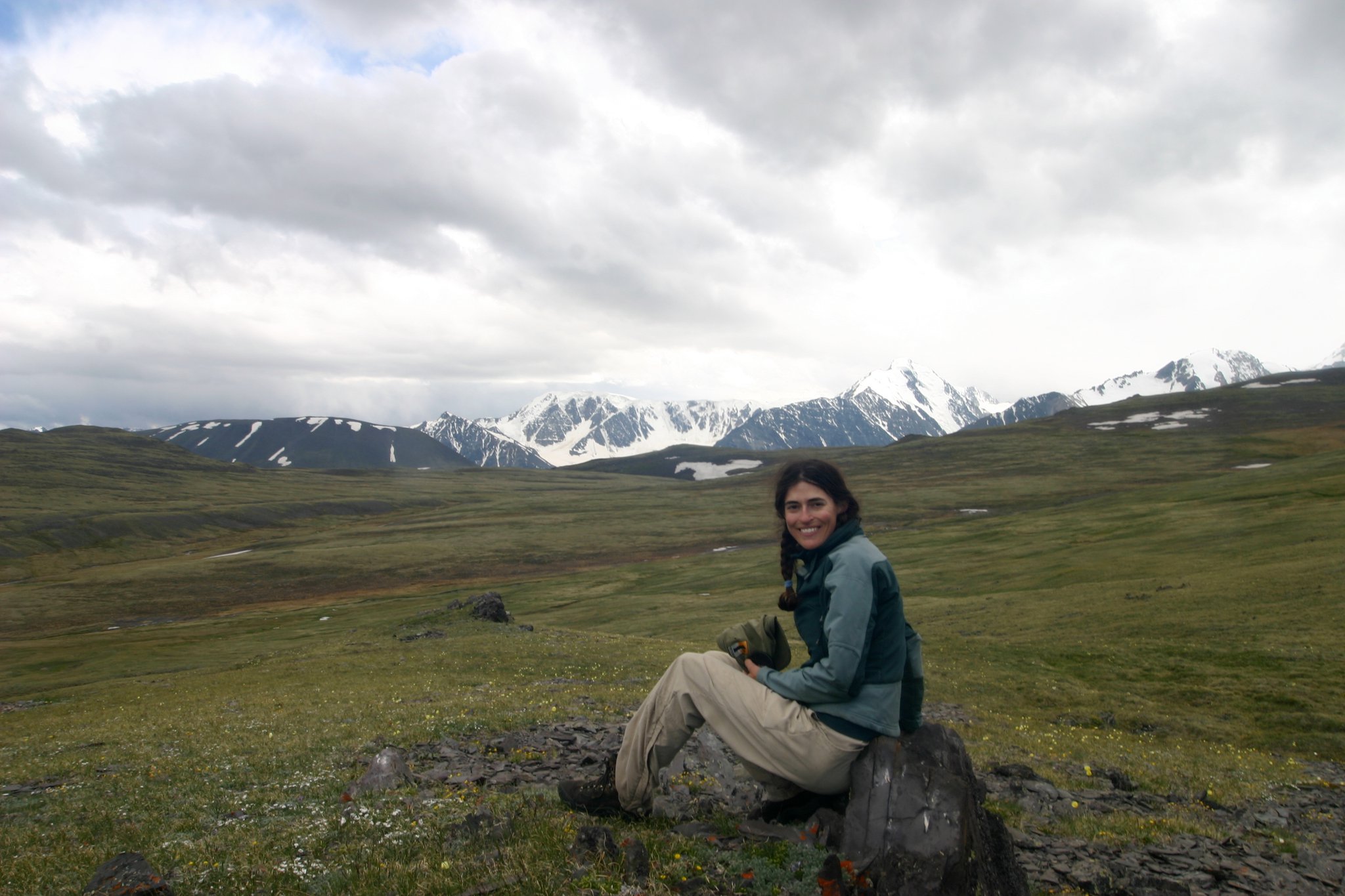In August of 2006, volunteering with the Absaroka-Beartooth Wolverine Project, I backpacked into a remote mountain valley where a collared wolverine had been spending time. That night, a wolverine came into our camp and spent 15 minutes circling us, his curiosity about us as evident as ours about him. Everything about the situation, from the rare opportunity to see a wolverine in the wild, to the animal’s engaging personality, to the peaks and snowfields and alpine meadows of his territory, was irresistible. I became an instant wolverine fan. Three years later, I launched the Wolverine Blog and the first survey of wolverines in Mongolia, endeavors that continue to the present. From the beginning of my work on wolverines, the Wolverine Foundation provided a tremendous resource in terms of information, scientific mentorship, and community. Nearly a decade after that first wolverine encounter, I am excited and honored to be taking over as executive director of the world’s most important organization for wolverine research.
Wolverines are enthralling in their own right — tough, resilient, mysterious, and inspiring, they inhabit fierce landscapes that exemplify wilderness. But they also embody one of the most critical questions of a new era of wildlife science and conservation: how do we prioritize and protect species and ecosystems that are vulnerable to climate change? The Wolverine Foundation has an important role to play in this discussion, as the world’s sole organization dedicated to advancing wolverine research. TWF will continue to convene wolverine scientists, identify important areas for research, communicate scientific results to the public, and serve as a nexus for scientists and the wolverine-interested public. I look forward to building TWF’s capacity to explore critical questions about wolverine ecology by increasing our existing small grants program, and launching a project-based fundraising system in conjunction with interested researchers. TWF’s scientific integrity makes it the perfect source for education efforts about wolverine ecology, and I will increase the level of outreach and education activities in communities around the world, from Mongolia to the US Rockies. TWF is also ideally situated to provide mentorship to the next generation of wolverine researchers around the globe – and the dozens of students, American, European, and Mongolian, who contact me with an interest in wolverine work testifies to the need for such engagement. And of course, I will continue to write about wolverine research, both my own and other scientists’, as the Wolverine Blog is integrated with TWF. These are just the first steps in the next era of advancing wolverine science.
2016 will mark the Wolverine Foundation’s 20th anniversary. In the two decades since the organization’s inception, the wolverine has gone from an obscure and poorly understood species, to an animal in the conservation spotlight. TWF and its supporters have been a vital force in facilitating research and communication about the species. With your support, TWF has created an international community of scientists and constituents around this amazing species as it has gained greater prominence over the past 20 years. As we look towards a future where wolverines are greater objects of study and of debate, TWF is more important than ever. Your continued participation in this community is essential to our success. Thank you for sharing your enthusiasm for the species and its tireless, dedicated researchers, and I look forward to continuing to work with you and TWF’s directors and advisors as we advance wolverine science and conservation in the years to come.
With warm wishes for a happy holiday season,
Rebecca Watters

 Follow
Follow
Hi Rebecca-
Congratulations on taking over the Wolverine Blog and your work with TWF.
I am a 62 year old graduate student of Natural Resources at Oregon State online, and I live in ID. My capstone paper is about landscape scale wolverine habitat protection for source areas and dispersal areas/corridors in lieu of ESA protections.
I work in land use in Blaine County, ID, including work on a board that recommends expenditures of a levy to support wildlife habitat, water resources and working farms and ranches. We partner with NGOs on conservation easements and fee simple acquisitions, as well as restoration projects. We match funds with these organizations to accomplish our goals. It is a foundling program that I spent 4 years helping to create; we hope that taxpayer money could be raised and used in the same way across the west.
I am so thrilled to see the collaborative efforts that are happening through Landscape Conservation Cooperatives and Joint Ventures.. This shift in planning is to me a practical way to work towards protecting species and habitat across the country.
Best of luck with all that you are doing.
Lili Simpson
Hailey, ID
This is the BEST bibliography that I have ever seen!!!
Congrats! A perfect fit.